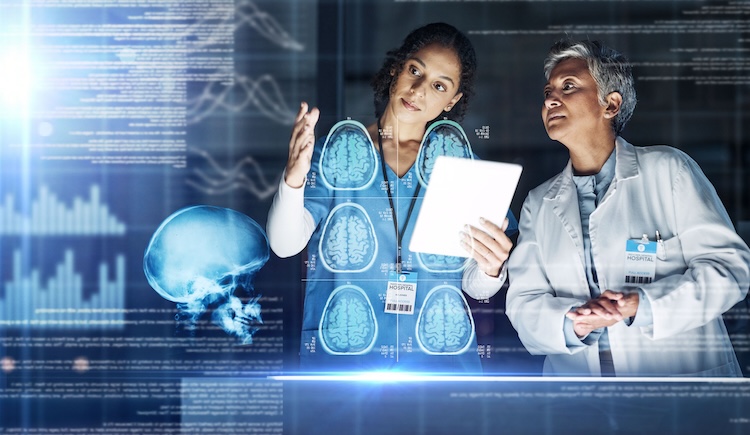
Artificial intelligence (AI) is emerging as a transformative technology in health care. It promises to enhance diagnostic precision, optimize treatment protocols, and revolutionize preventive care through predictive analytics, paving the way for truly personalized medicine.
However, AI systems may struggle with ingrained biases, which can distort their outputs and perpetuate existing inequalities. In this way, AI is more than a tool; it's a mirror reflecting our collective values and biases.
These biases are inadvertently programmed into AI systems and, as a result, can have a negative impact on patient care. This issue exposes underlying prejudices and flaws in our practices. It's a wake-up call to address these biases not only within our technologies but also within ourselves.
AI as a Reflection of Human Bias
AI in health care is often seen as a beacon of objectivity. However, the truth is that AI systems learn from large datasets that are themselves products of human decision-making processes.
These datasets can include historical health records, treatment outcomes, and patient demographics. When these data carry biases—such as underrepresentation of certain groups or gender biases in treatment—AI systems inevitably absorb and perpetuate these biases.
For example, an AI used across several U.S. health systems exhibited bias by prioritizing healthier white patients over sicker black patients for additional care management because it was trained on cost data, not care needs.
AI models that predict patient outcomes may inherit biases if the data used reflects historical inequalities in treatment or access to care.
Algorithms may predict lower health risks for populations that have historically had less access to health care services, not because they are healthier, but because there is less documented health care usage. This demonstrates how AI can entrench existing disparities if not carefully managed.
Reflecting on the Root Causes
This situation compels us to look deeper. The bias in AI outputs is not an AI problem per se but a human one. It stems from historical inequities in health care access and treatment, biased clinical decision-making, and uneven distribution of medical resources. Recognizing that AI’s flaws reflect our own biases provides an opportunity for introspection and improvement in clinical practices.
The Path to Unbiased Artificial Intelligence
Creating unbiased AI requires proactive steps. First, we must diversify the data. This means including more comprehensive datasets that accurately reflect the demographic diversity of the population. For example, increasing the representation of minority groups in clinical trials and health records can help train more equitable AI systems.
Second, continuous monitoring and updating of AI systems are essential. AI should evolve as societal norms and medical understanding evolve, ensuring that biases are identified and corrected promptly. Regular audits of AI decision-making processes can help identify and mitigate biases that might emerge over time.
Third, promoting interdisciplinary collaborations can enhance AI development. Involving ethicists, sociologists, patient advocates, and other stakeholders in AI development can provide a broader perspective and help ensure that AI systems are ethically sound and culturally sensitive.
Lastly, ongoing efforts to make the practice of health care more equitable are essential to reducing biases in patient care, which ultimately helps in training unbiased AI systems by providing more balanced and representative data.
Towards a Reflective Practice in Health Care
As health care professionals, our responsibility extends beyond our immediate patients to the broader community and the societal implications of our work. The integration of AI into health care challenges us to be more reflective. It encourages us to confront uncomfortable truths about biases in our practices and strive for a health care system that upholds the principles of equity and justice.
AI has the potential to transform health care by improving diagnostics, personalizing treatment plans, and enhancing patient outcomes. However, its greatest benefit may be its ability to serve as a mirror, prompting us to confront and rectify the errors within our systems and ourselves. By doing so, we not only improve the technology but also take a significant step towards more compassionate and equitable health care.
As we continue to integrate AI into health care, let’s use it as a catalyst for change, ensuring we leverage technology to advance health care in a way that is fair and just for all.


